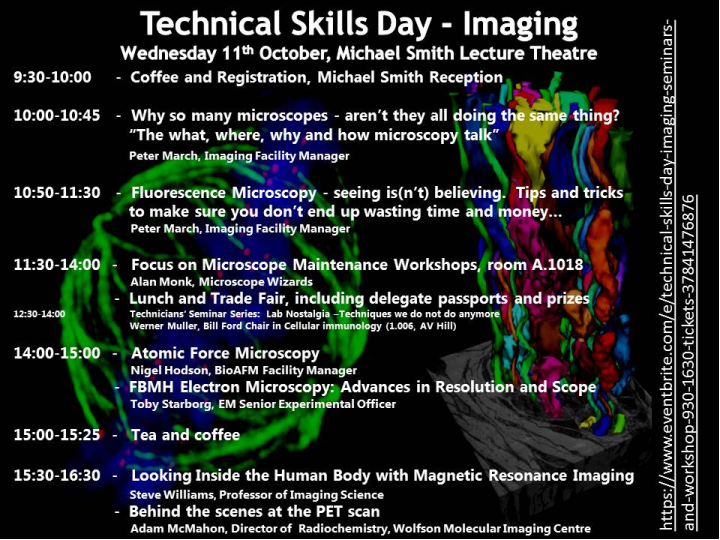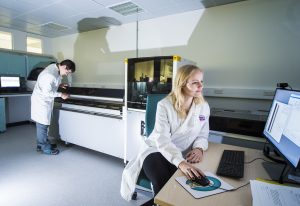 Follow us on Twitter! Our account will tweet out whenever a new blog article is posted @TEaM_UoM – https://twitter.com/TEaM_UoM
Follow us on Twitter! Our account will tweet out whenever a new blog article is posted @TEaM_UoM – https://twitter.com/TEaM_UoM
Technical Skills Day – Imaging
Click here to register.
FBMH Body Experience

Peter Walker (Histology Facility Manager) and Sanjai Patel (Fly Facility Manager) were two of the many volunteers and > 80 researchers to host an interactive stand as part of the ‘FBMH Body Experience’ at Manchester Museum on March 18th 2017. The event saw over 2000 visitors, of all ages, explore the human body from head-to-toe as part of British Science Week 2017.
September Newsletter Introduction
“On behalf of the Steering Group, I would like to welcome you to the 2nd edition of the newsletter for Technical Excellence at Manchester (TEaM), which has now 264 people subscribed to the TEaM email distribution list.
In this issue, in addition to the quarterly round-up of TEaM news, technical achievements, welcoming and introducing new starters and dates for our diaries, we have:
Article: Manchester signs up to the Technician Commitment
Promotion or Event: TEaM feedback sessions
Article: Apprenticeship Technical Vacancies – Live Now!
Staff Profiles: Peter Leigh (Hum), Marie Emerson (FSE), Brian Landamore (FBMH)
Article: Academic Perspective with Prof Andrew Horn (Director of Teaching and Learning) and Prof Tony Whetton (Director of Stoller Discovery Centre and Manchester Precision Medicine Institute)
Editorial: How has CPD given my career a new lease of life? By Sandra Taylor
As the new academic year approaches, you can see that there are lots of changes underway – the Technician Commitment by the University is a great step forward for an institution that previously didn’t acknowledge technical staff as a grouping in its published literature. Likewise, the new intake of apprentices should change the dynamic of the technical cohort, just as our new academic champion will bring a different flavour to the support we receive at the highest level. Hopefully, you’ll see TEaM changing too: to increase the relevance of the events and tours we put on and explore new ways we can fulfil our mission statement. We need your views for this, so please sign up for the feedback sessions we are running over the next 3 months via Staff Learning and Development. (https://app.manchester.ac.uk/HUMNS8596).
I would speculate that the majority of you reading this are already engaged with TEaM, but for those of you who aren’t, I would like to encourage you to ‘subscribe’ to TEaM for emails and visit the TEaM blog, (details below), so that you can enjoy all the benefits that our network offers; TEaM is a cross-Faculty network, open to all staff with a technical role.
Don’t forget, we are always looking for contributions to bring together technical staff from all areas of the University, to share our experiences and celebrate our vital contribution to teaching and research within our University and beyond. So, if you have a news story or announcement for the next issue please email: technical.excellence@manchester.ac.uk. For further editorial details, please see the TEaM blog (http://blogging2.humanities.manchester.ac.uk/team/).”
Rae Watkins (Chair)
Siemens hands-on PCS7 Workshop
School of Chemical Engineering and Analytical Science had a group of young professionals working at Siemens over the summer period visit to experience their Siemens hands-on PCS7 workshop.
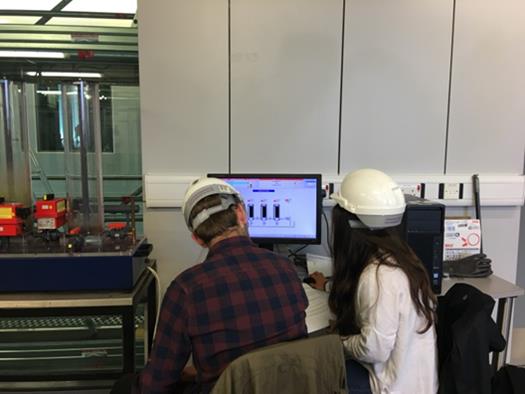
Over two days the group worked with four different experimental instruments using the control system. This included: – the Froth Flotation, Absorption Column, Three Tank Control and the Liquid Ring Pump. They followed a set of instructions which told them how to use the piece of equipment and also gave an activity specific to each one.
Both days ran smoothly and the group had a great time working with them and will consider visiting again next year!
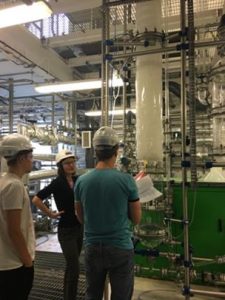
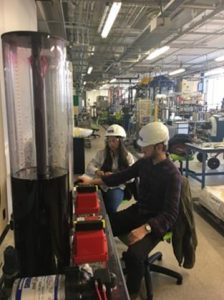
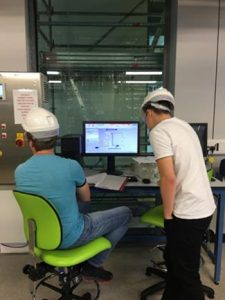
Reyna Gutierrez Rivera’s 10 months/10 events challenge
The pieces of our life are made by our memories. If we lose them, what are we?
Alzheimer’s is a complex disease, barely understood and with increasing number of casualties. It does not only affects the subject, but the people surrounding it. As many of you, one of Reyna’s dearest has been touched and ultimately, lost the battle.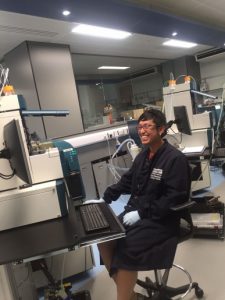
Reyna Gutierrez Rivera, a Research Technician at the Stoller Biomarker Discovery Centre started a 10 months/10 events challenge on her way to conquer her first trail marathon. She took this opportunity to raise money, awareness and help research to tackle the disease.
Incredibly since January 2017, she has ran 7 events: 10K, 9 miles, 10 miles and half-marathons. Also, she has organised a bake sale last June to raise funds for this challenge.
Her next event will be a trail weekend-training where she will run the marathon distance. So far she has raised £241.13
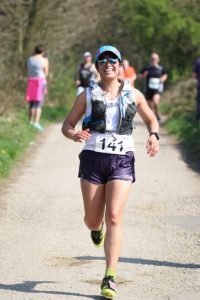
Please, help her to reach her goal and stay motivated by donating to her justgiving page:
https://www.justgiving.com/fundraising/tacorunning
If you have any questions or a good excuse to run around, drop Reyna an email at reyna.gutierrezrivera@manchester.ac.uk
Tropical Ecology and Conservation: Costa Rica
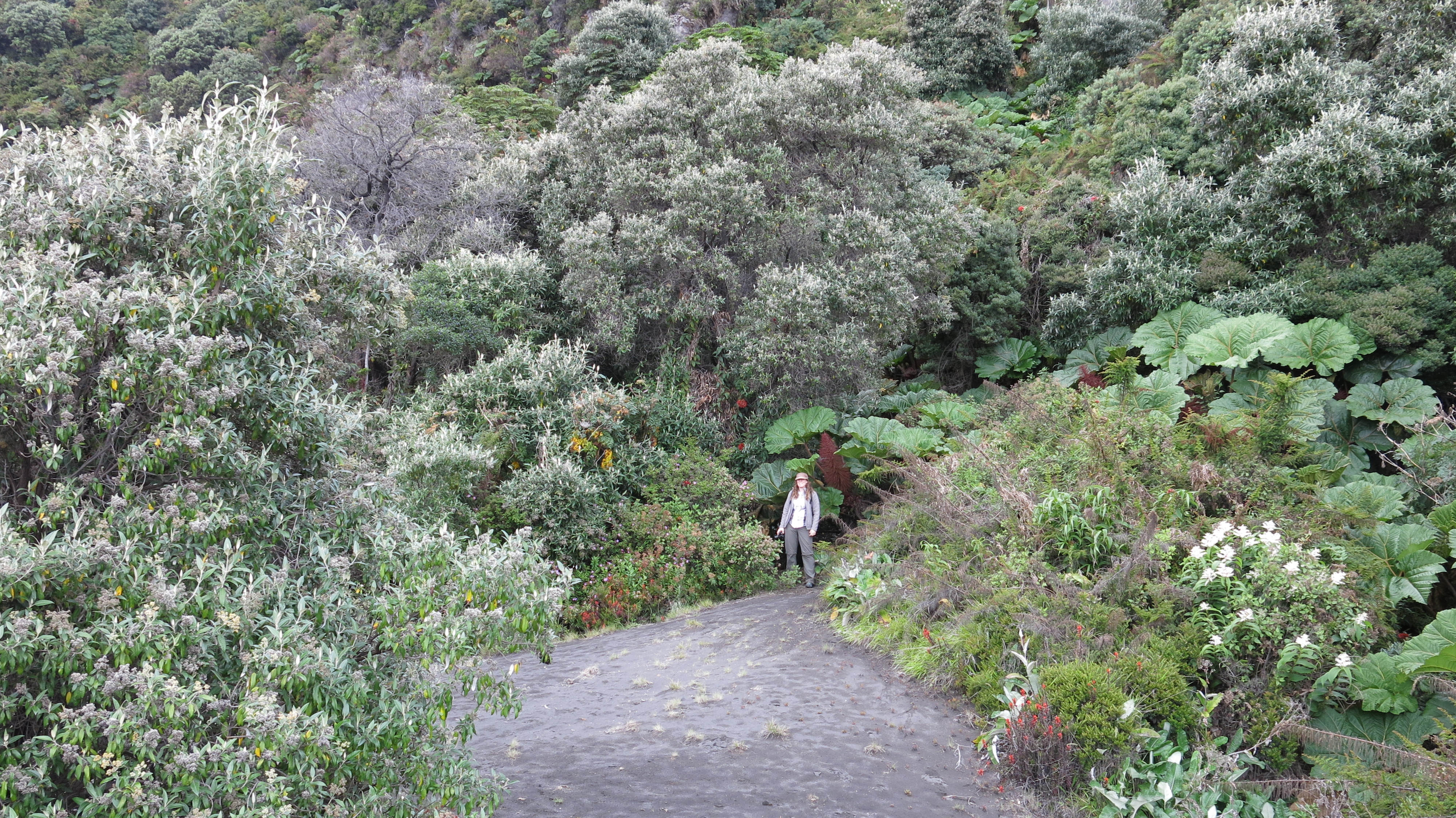
Debbie Ashworth was recently on secondment from FSE to FMBH for three weeks to work as a member of staff on a second year undergraduate field course within the School of Biology on tropical ecology and conservation based in Costa Rica. Her current role with the University is as a research technician.
The course involved visiting different areas and habitats in Costa Rica and experiencing various methods of conservation and the diversity of life in the rain forest.
She directly supervised student projects researching tropical bat species and leaf cutter ants as well as aiding with other aspects of the course.

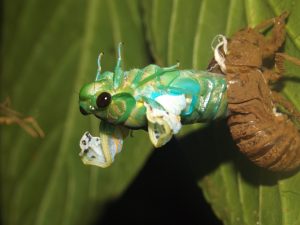

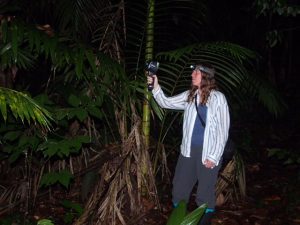
Highlights of this course are detailed in https://frogblogmanchester.com/
Editorial: How has CPD given my career a new lease of life?
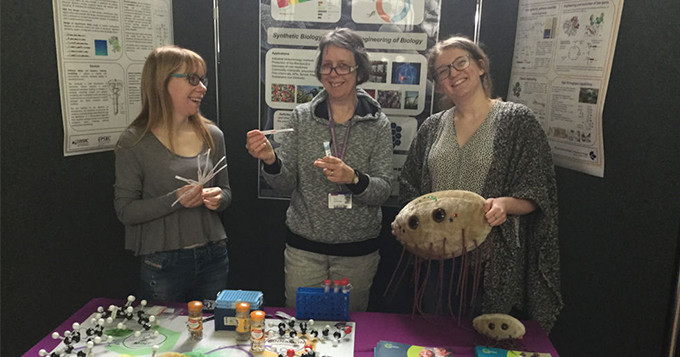
By Sandra Taylor RSci
I have worked in research support for many years now, starting my first lab role in a veterinary lab in 1987 and my first research assistant role in 1988 when I joined the team of the (now) Prof Coen FRS at the John Innes Centre in Norwich. It was the beginning of Molecular Genetics and an exciting time to be in research. We identified a key gene essential for flowering in plants, and then quite a few more, using transposon tagging.
In 1998 I moved back to my home city of Manchester and had a chance to learn more about Biochemistry. I worked for several groups with the theme of protein movement within cells until my daughter was born in 2000. I decided then to take some time away from science, returning to the bench in 2007.
More recently I moved to the Manchester Institute of Biotechnology (MIB) to a very different kind of work, which has brought new challenges. I am currently supporting SYNBIOCHEM, one of six Synthetic Biology centres around the country and am part of a large team using new high throughput technology and computational DNA design to build new pathways for the production of fine and speciality chemicals. This has again brought new and enjoyable challenges and it’s really fun to work as part of a multi-disciplinary team.
Recognition of lifelong learning
My journey to being involved with the Science Council began when I went to a meeting about professional registration, run by my previous manager who is now registrar for the Institute of Science and Technology (IST). I loved the idea of being able to evidence the lifelong learning I have always embraced to stay on top of new developments and ideas.
I value this recognition for support staff who often develop their skills and experience on the job, but who previously didn’t have anything on paper to demonstrate this journey. Especially today where it’s likely that technical staff will change jobs during their careers, it’s great that this award can be taken with us, even between industry and academia.
Developing personal responsibility and interpersonal skills
I completed registration as a Registered Scientist (RSci) in 2013. One of my CPD goals was to organise the technicians’ seminar series for my faculty. This helped to develop my personal responsibility and interpersonal skills. I was given some initial guidance by the previous organiser and my technical manager, then built on contacts I already had to make plans for the programme themes, the timing of the seminars (inviting feedback on both), and recruited volunteers who helped put up posters in their work area and helped tidy up after each event.
To promote the seminars, I sought advice from a colleague and used posters, faculty emails, plasma screens and word of mouth. I booked the catering and the meeting room well in advance. Each week I made sure the speaker was still OK to present, and checked what form their presentation was in. Fitting this around the lab work was challenging but my supervisor was supportive.
In a nutshell, I would not be doing my current role, which I thoroughly enjoy, had I not embraced professional registration. I met my current co-Director through organising the seminars. It’s given my career a new lease of life.
Supporting colleagues with professional registration
As another CPD goal, I trained to become an assessor for the IST and plan to volunteer as an assessor for the Science Council in the near future. I have helped several registrants at the University of Manchester to complete their paperwork and have run two workshops on registration for the University. This helps promote professional standards both in my own work and the way I assess applicants, and also raises the standards of those who we are assessing as we offer feedback and advice on areas for their professional development.
Volunteering outside of work
As a third CPD goal, I have taken part in several outreach events; explaining science to the public and to school students, which has been fun, as was helping to organise March for Science Manchester. It’s surprisingly challenging to take the scientific knowledge and understanding that we have and explain it in a way that the public will understand.
For one year I organised their NW networking meetings. In my career I found the best way to learn something new is to ask for help from someone else who is already successfully doing it. Sharing best practice by professional networking is a great way to learn and develop professional practice.
And last year, I was asked by the IST and by the Science Council to become a Registrant Champion, and to share my story in a blog, so here it is.
I so often get asked “what’s the point of professional registration?” or “what’s in it for me?” or even “why should I have to pay for it?” I would say if you care about job satisfaction, having pride in your work, meeting with others to share experiences and expertise, then just maybe, you will find new opportunities and new horizons from being a registered professional scientist that you didn’t know were there. Just go for it!
This article was originally blogged on the Science Council website on 06/06/17.
Academic Perspective: Prof Tony Whetton
Director of Stoller Biomarker Discovery Centre and Manchester Precision Medicine Institute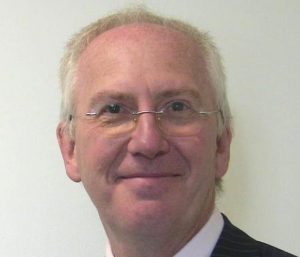
New high end instrumentation is being employed to ensure patients receive the right treatment at the right time at the right dose. To ensure that the maximum opportunities are taken from such platforms a highly skilled workforce is required. At the University of Manchester we have developed just such a highly skilled technical team to enhance the development of precision medicine and companion biomarkers.
The Stoller Biomarker Discovery Centre was established to aid in the development of new diagnostic tools and protein biomarkers to assist in diagnosis or to judge whether a patient is or will show a response to drugs. It is co-located with the Manchester Molecular Pathology Innovation Centre (MMPathIC) in a £3 million purpose built laboratory. The Stoller Centre was developed with a £13 million Medical Research Council grant and now has funding of about £25 million (inclusive of a £6 million equipment base) with MMPathIC. MMPathIC takes forward findings from the Stoller Centre, partnering companies and other research laboratories to develop tests and devices that can be used in the NHS and elsewhere to take clinical decisions. The funding acquired has been awarded for a platform and a concept that absolutely relies on the highly skilled technical staff we have employed to deliver data and information via the use of highly complex molecular weighing machines known as mass spectrometers plus other complex pieces of equipment. In mass spectrometry precision, accuracy and reproducibility are everything. Maintaining all these criteria needs to take place within a strictly controlled laboratory environment where every sample has to be tracked and every manipulation performed on a sample needs to be recorded. Then, all raw data has to be stored and archived and also processed into information, a huge task given the amount of data we produce. This means our colleagues had to develop and build a complex informatics structure from scratch.
In the Stoller Biomarker Discovery Centre we began with a shelled out piece of laboratory space and built the laboratory from nothing. We appointed excellent technical staff who helped to develop the project from the ground up taking into account sample tracking and all other features mentioned above. We have made a globally unique centre based on their team work, willingness and hard work. For example, in one strand of its activity the Stoller Centre has industrialised the process of finding and quantifying proteins in blood, synovial fluid or cells. With the help of our technical staff we developed the standard operating procedures to perform these assays in a fashion that would be acceptable under good clinical practice guidelines. This involved standard procedures to “cut” proteins with enzymes, chemically reduce them and alkylate them. We often need to extract proteins at very high pressure and approaches to do that also had to be developed to best practice standards, again protocols had to be developed to do this.
Now we sit on a huge opportunity to improve healthcare thanks to the work of our staff in the Stoller Centre in the past and the future. We have projects in arthritis, leukaemia, ovarian cancer, psoriasis, lupus erythematosus, schizophrenia, dementia, heart failure and others. We are making and we will make a different thanks to our integrated and excellent technical support team.
Academic Perspective: Prof Andrew Horn
Technical Excellence Supporting Teaching
Director of Teaching and Learning, School of Chemistry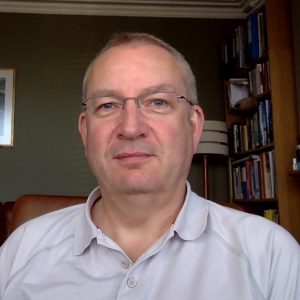
The role of The University of Manchester’s world-class infrastructure and technical staff in the generation of internationally competitive research outputs and knowledge transfer is well documented, and is an important draw for academic researchers and businesses to the University from around the world. Perhaps less well documented, but equally important in pursuit of the University’s strategic vision and in attracting excellent students to study at Manchester, is the role of technical staff in teaching and learning – this is especially true in the School of Chemistry.
Being able to ‘do’ practical chemistry is as important as subject knowledge for many of our graduates in their future careers, and it is also an integral part of learning how to be a well-rounded chemist. An effective, professional partnership between technical and academic staff is crucial for around 700 students per year to gain hands-on experience of advanced, modern practical chemistry.
The technical demands of laboratory teaching programmes are wide-ranging: in any given week during the semester in the teaching labs, our technical staff engage in setting up an array of sophisticated experiments, rapid scene-shifting between different classes (a highly complex manoeuvre with very little margin for error), maintenance, calibration and operation of sophisticated analytical equipment, ‘on-the-fly’ problem solving, procurement, scheduling and implementation of laboratory safety to name but a few things. To deal with this level of student throughput whilst maintaining a world-class student experience requires not only skill but dedication and attention to detail.
Many of School’s technical specialists also engage in ‘face-to-face’ activities with students, for example guiding them through the operation of state-of-the-art instrumentation used in advanced practicals and research projects. A number of technical staff are also heavily involved in the design of practical teaching, both in the process of turning academic ideas into workable, in-lab experiments and in the specification, commissioning and operation of advanced instrumentation. And of course ‘stuff breaks’ in the real world: we rely heavily on the expertise, and often the ingenuity, of a wide range of technical specialists including IT experts, electronic and mechanical engineers and, of course, glassblowers (well it is chemistry after all) to keep our teaching apparatus and instrumentation in excellent shape.
The importance of our technical colleagues’ skill and dedication to the teaching programmes, undergraduate research projects, and thus the student experience, cannot be overstated.

